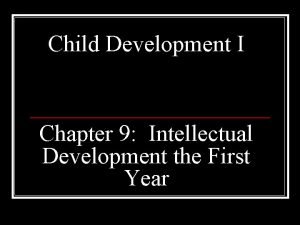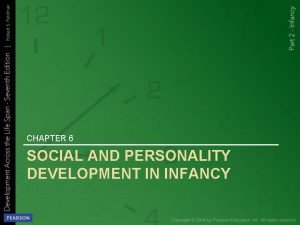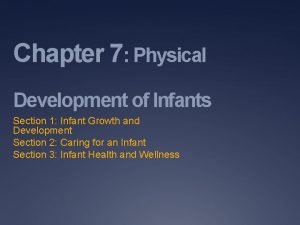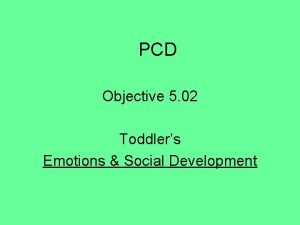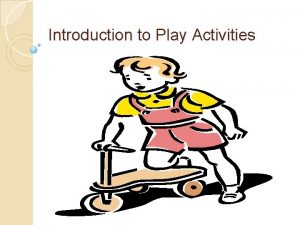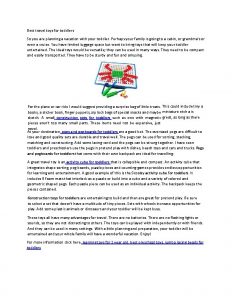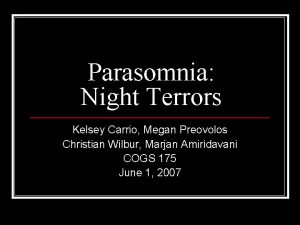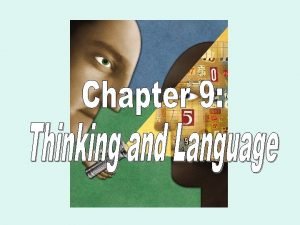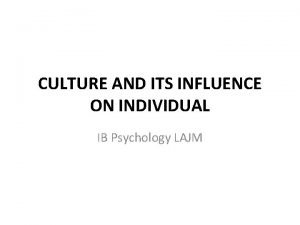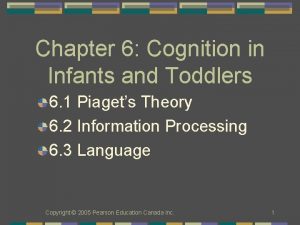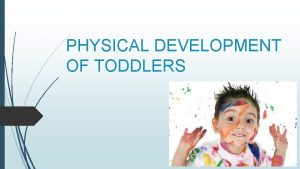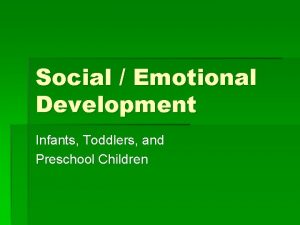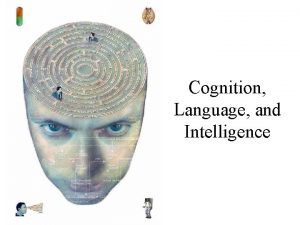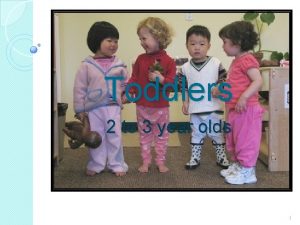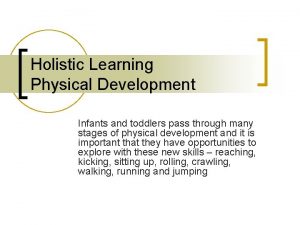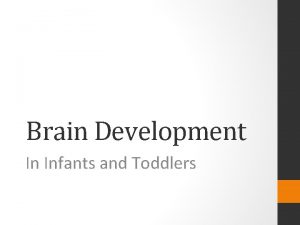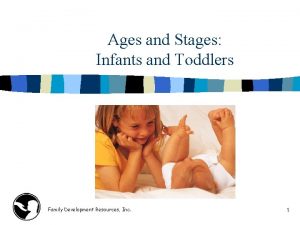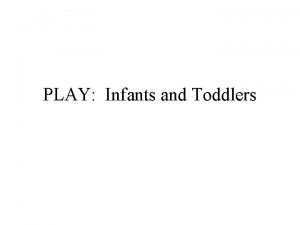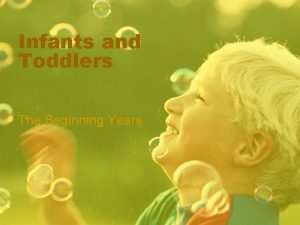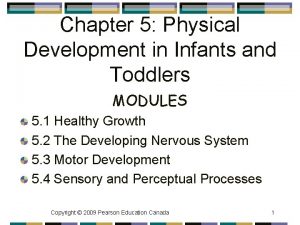The Social Development of Infants Toddlers Social Cognition
















- Slides: 16

The Social Development of Infants & Toddlers

Social Cognition How we think about & understand interactions between people

Joint Attention A process in which an individual looks at the same object that someone else is looking at, but also looks at the person to make sure that they are both involved with the same thing.

Play • Research shows that playtime is essential to intellectual development. • Toys are the tools for learning.

Play Progression Unoccupied Play Involves looking around at whatever occurs, but engaging in no activity

Onlooker Play Watching others play; onlooker play happens most often during the toddler years.

Solitary Play Engaging actively with toys that are different from those being used by other children

Parallel Play Children begin to play alongside other children, often using the same type of materials, without any interaction.


Associative Playing with other children, sharing toys, and interacting, but with no overall organization of the group to achieve a common goal

Cooperative Play Cooperative play begins in the late preschool period. The play is organized by group goals.

Imaginative Play *Pretending along with the ability to imagine things that might happen.


Imaginative/Fantasy Play Children learn to try new roles and situations, experiment with languages and emotions with fantasy play.

Magical Thinking • The thinking that allows the child to believe she can direct the elements around her. • They feel that they are responsible for an event or events occurring or are capable of reversing an event simply by thinking about it and wishing for a change.

Imaginary Friends Testing the world and testing adults. Allow a child to feel in charge, break the rules, feel a bit of control.
 Creative curriculum for infants and toddlers
Creative curriculum for infants and toddlers Lesson 9.1 intellectual advances in the first year
Lesson 9.1 intellectual advances in the first year Infant personality development
Infant personality development Chapter 7 physical development of infants
Chapter 7 physical development of infants Jalan pintas mental
Jalan pintas mental Socialization of toddlers worksheet answers
Socialization of toddlers worksheet answers Play therapy definition
Play therapy definition Amoebiasis stool color
Amoebiasis stool color Milk for toddlers with milk allergynon dairy
Milk for toddlers with milk allergynon dairy Best travel toys for toddlers
Best travel toys for toddlers Kelsey carrio
Kelsey carrio Fever in toddlers when to worry
Fever in toddlers when to worry Negativism in toddlers
Negativism in toddlers Belief perseverance
Belief perseverance Types of thought process
Types of thought process Serial 7s or 3s
Serial 7s or 3s Acculturation studies ib psychology
Acculturation studies ib psychology

